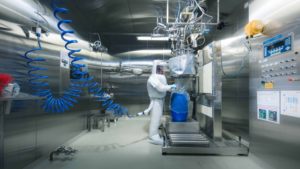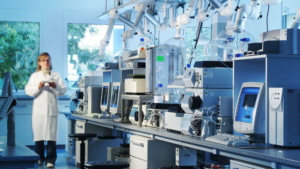
Bayer’s Ask Bio unit starts Phase II heart failure gene therapy
Bayer SE subsidiary Asklepios BioPharmaceutical Inc. (AskBio) has started Phase II testing of AB-1002 (NAN-101) in patients with congestive heart failure.
The Phase II trial called GenePHIT is the largest adaptive, double-blind, placebo-controlled, randomised, multicentre trial ever to evaluate the safety and efficacy of a single intracoronary infusion of AB-1002 in stable 90 to 150 patients with non-ischemic cardiomyopathy and New York Heart Association (NYHA) Class III heart failure symptoms. AB1002 is an AAV vector that encodes an protein phosphatase I blocker. Increased protein phosphatase-1 in heart failure (HF) induces molecular changes deleterious to the cardiac cell. Particularly, AB-1002 (AAV2i.8.I-1c): improves intracellular calcium cycling, decreases fibrosis and reverses remodeling.
Patients will be randomized into one of three treatment groups in a 1:1:1 fashion to either 3.25E13vg (n=30-50), 6.5E13 (n=30-50) or placebo group (n=30-50). Primary outcome measures include cardiovascular related death and change from baseline in NYHA classification, left ventricular ejection fraction (LVEF), peak oxygen uptake (pVO2), and Six Minute Walk Test. According to headline results reported in November 2023, the higher dose of AB-1002 improved left ventricle ejection fraction in four out of five heart failure patients at 12 months. One of this five patients died not due to the medication.
AB-1002 is manufactured by the CDMO Viralgen Vector Core, S.L., a wholly owned and independently operated subsidiary of AskBio.
Heart failure occurs when the heart cannot pump blood efficiently enough to meet the body’s needs, including providing sufficient oxygen to the organs. Congestive heart failure results in the slowing of the blood flow out of the heart, which causes the blood returning to the heart through the veins to back up. This causes congestion in the body’s tissues. Symptoms include swelling in the legs and ankles. Sometimes, fluid collects in the lungs and interferes with breathing.


 Lonza Group
Lonza Group Vetter Pharma
Vetter Pharma